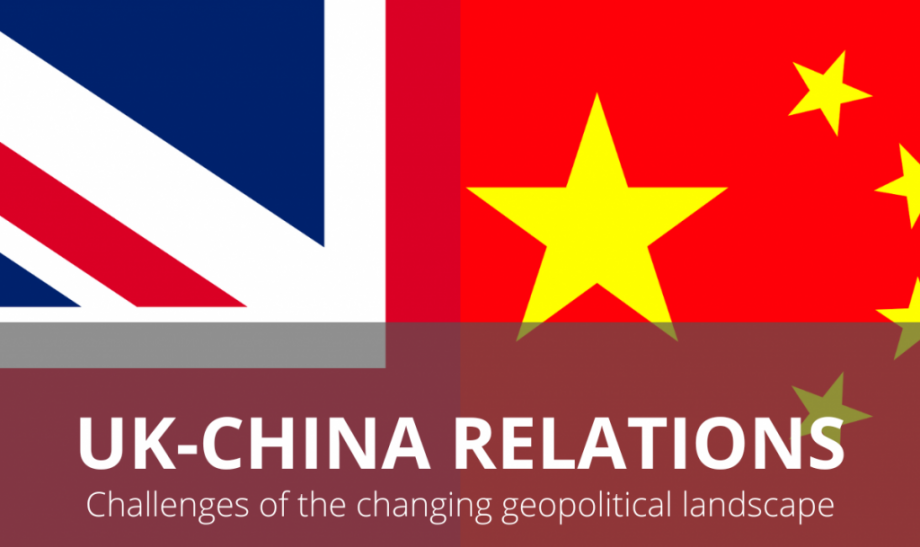In the final contest for the Conservative Leader / Prime Minister, China has suddenly emerged to be a prominent topic during heated political debate. While some China watchers and experts dismiss these as just “noise” associated with the PM selection and “football playing” in the political process to secure the seat, others are not quite so sanguine on the “risk of real damage” being done within an already fractious relationship between the two countries. The contest will only intensify in the next few weeks but it remains to be seen whether the China topic will continue to stay top of the agenda.
Scope for optimism
Despite all the noise and continuously challenging geopolitical circumstances, I believe there is still some scope for cautious optimism as far as UK-China business is concerned.
To start with, both economies are still growing, although with different latitudes. Despite high inflation pressure caused by the energy price spikes, the UK economy should narrowly avoid recession in 2022, with GDP forecast to grow 3.7% in 2022, says the latest EY ITEM Club report.
In China, after months of disruptions, the economy looks to be back on the path to normalisation. The recent announcement to shorten the isolation period from 21 days to 10 days and adjust the frequency of Covid tests was largely welcomed by the international business community. To help restore the economy as well as confidence from both consumers and businesses, the Chinese government has rolled out a raft of tax cuts and subsidies in recent weeks and may be announcing more support soon.
As consumer demand returns, it is expected that retail sales will turn from negative year-on-year growth in 2Q22 to positive growth in 2H22. This should benefit domestic producers as well as foreign exporters who are looking to grow their sales into China.
With a more robust external demand and Chinese port congestion now eased, we see a better international trade environment going forward, compared to 1H 2022. China's foreign trade saw positive changes in the second quarter, according to a recent survey conducted by the China Council for the Promotion of International Trade (CCPIT).
A favourable outlook
On a daily basis, the team at Crayfish.io has been talking to fast-growing UK and European businesses across a range of sectors, including manufacturing and engineering, automotive and EV, education, life science and renewable energy, as well as those in B2B services and FMCG sectors. Most of them are interested in understanding more about the Chinese market and they are keen to identify and work with local partners.
With the possible gradual easing of travel restrictions to China, I would advise British and European businesses to re-evaluate the Chinese market and consider investing to build more local capacity and resources. Some of them may look at expanding into different sectors and geographic areas. For example, if your business is looking to set up new manufacturing facilities in China to streamline your supply chain for Asian markets, you would be in a good position to explore the favourable policies in terms of tax and land use prices available across the country.
Time to build bridges
The UK’s innovative culture and established technology commercialisation system (like we see from our base in Cambridge) continues to provide fertile ground for ambitious start-ups that may become tomorrow’s unicorns. These can obviously benefit from the vast Chinese market.
In other sectors such as health care & life sciences and financial services, we also see continuous interest from both sides to work together. Finally, climate change and sustainability remain high on the collaboration agenda and receive political and policy support from both sides of government.
The UK continues to attract Chinese investors across a wide range of sectors, from TMT, advanced manufacturing and mobility to health care & life sciences, and financial services. According to EY China, the momentum of Chinese M&As might slow down due to geopolitical uncertainty. Global supply chains might be further reshaped as well; therefore more Chinese enterprises might consider greenfield investment overseas to keep up with the growing trend of getting closer to the consumer market in this part of the world. The UK can indeed position itself as a perfect partner for forward-thinking Chinese companies that want to build or increase their foothold in the UK and the rest of Europe.
UK leadership campaign politics will settle in early September and let’s hope that the main policies revert to the status quo before this contest. And in China, preparation is already underway for the 20th Party Congress in November. No matter what happens at the political levels, if the businesses in both countries can just “keep calm and carry on”, by creating more collaborations, big or small, then together we can still hope that the positive energy from the bottom up will prevail in the end.
More than ever, we need to maintain people-to-people dialogue and build business links, language learning and cultural savvy between the UK and China. More bridges need to be built and maintained rather than burnt.
Ting Zhang is the CEO & Founder of Crayfish.io, a leading digital platform for business engagement with China. Views expressed in this article are purely personal and not from Crayfish.io.
Sources
https://www.theguardian.com/politics/2022/jul/25/sunak-ruse-aims-to-outmanoeuvre-truss-over-china
http://english.scio.gov.cn/chinavoices/2022-06/30/content_78297742.htm



